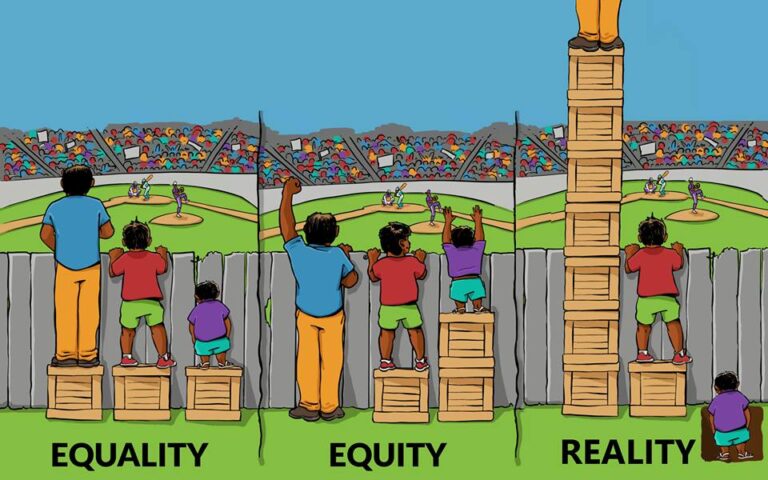The failure to appreciate the difference between equality, equity, and reality is the reason behind having distorted societies. Although there is a high level of overlap between these terms, their connotations are quite different. Failure to understand them results in wrong strategies when solving social issues. This article compares them and explains why they are significant in the fight for social justice.
Equality: A Level Playing Field
Equality allocates all resources, opportunities, or assistance without considering the baseline. For instance, one can propose providing tools similar to those used by the workers in the organization without considering the level of the workers’ skills. This method guarantees equal treatment but fails to assess differences. This is where equality and equity stand – equality means everyone is treated equally, but the context of equality does not consider the disparities that one may find themselves.
Equity: Special Approaches for Justice
Equity takes a different approach. It focuses on a fair distribution of assets because of individual differences. It guarantees that people receive the resources needed for similar results as a contingency. For instance, in learning, equity may refer to providing additional resources to learners from needy areas. In filling these gaps, equity serves a massive role in justice in society. It is easier to appreciate the need for equity in development once one understands the need to transform the policies of marginalized communities.
Reality: Bridging Ideals and Practice
Reality is the real-life circumstances that people encounter in their existence. Whereas equality and equity concern goals and reality concerns goals’ feasibility. In many cases, systematic, cultural, and economic factors constrain the attainment of both. Thus, understanding equality and equity as social justice components becomes relevant when studying these practical problems. Lacking recognition of reality, endeavours to think about equity are ineffective.
Equality vs. Equity in Social Justice
This is the case because equality and equity have to be aligned in order to form a society that is just. Equality means everyone is treated fairly, and equity deals with unfair treatment. The distinction between equality and equity is basic in developing sound social policies. For example, equality means the same services to all in health care, but equity ensures that the services are available to the needy.
Why Understanding These Differences Matters
Recognizing the difference between equal, equal for a reason, and equal in outcome is useful because people can only change their behaviour and the structure of organizations. Equity then fills the void created by equality and reality gives the yardstick by which success is gauged. Altogether, they build the base for creating a fairer society.

